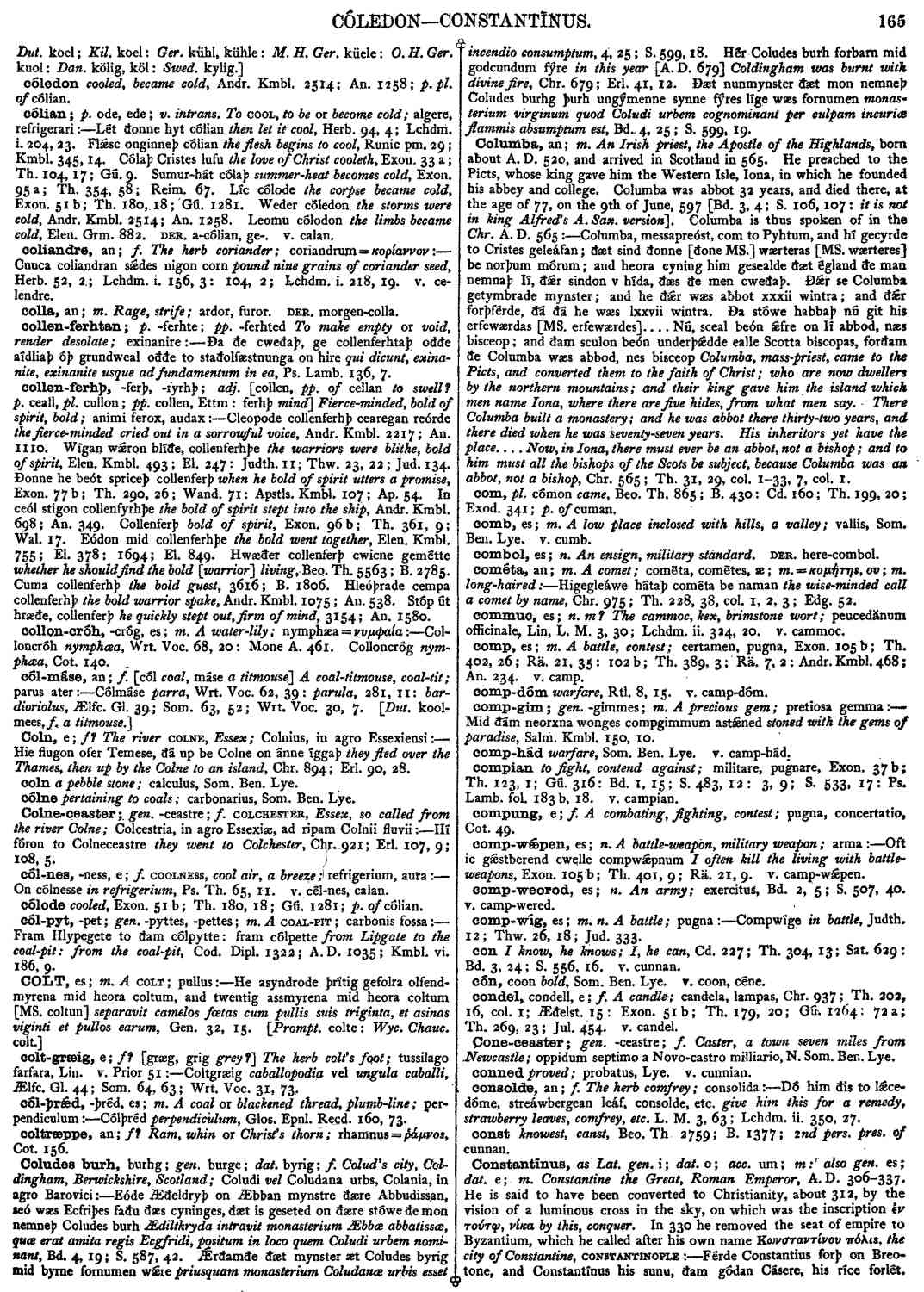Constantīnus
- noun [ masculine ]
-
Férde Constantius forþ on Breotone, and Constantínus his sunu, ðam gódan Cásere, his ríce forlét.Wríteþ Eutropius ðæt Constantínus, se Cásere, wǽre on Breotene acenned
Constantius died in Britain A. D. 306and left his kingdom to his son Constantine, the good emperor. Eutropius writes that the emperor Constantine was born in Britain
- Bd. 1, 8 ;
- S. 479, 30-32.
-
Constantius, se mildesta man, fór on Bryttanie, and ðǽr gefór; and gesealde his suna ðæt ríce, Constantínuse, ðone he hæfde be Elenan his wife
Constantius, the most merciful man, went into Britain, and died there; and gave the empire to Constantine, his son, whom he had by Helena his wife
- Ors. 6, 30 ;
- Bos. 126, 39-41.
-
Ðá wæs syxte geár Constantínes cáserdómes
then was the sixth year of Constantine's imperial power
- Elen. Kmbl. 15 ;
- El. 8.
-
Ðá sige forgeaf Constantino cyning ælmihtig þmrh his róde
then the king Almighty gave victory to Constantine through his cross
- 289 ;
- El. 145.
-
Mid Constantíne
with Constantine
- Ors. 6, 31 ;
- Bos. 127, 42. Also dat. Constantínuse,
- 6, 30;
- Bos. 127, 7, 17, 23.
Bosworth, Joseph. “Constantīnus.” In An Anglo-Saxon Dictionary Online, edited by Thomas Northcote Toller, Christ Sean, and Ondřej Tichy. Prague: Faculty of Arts, Charles University, 2014. https://bosworthtoller.com/6556.
Checked: 1